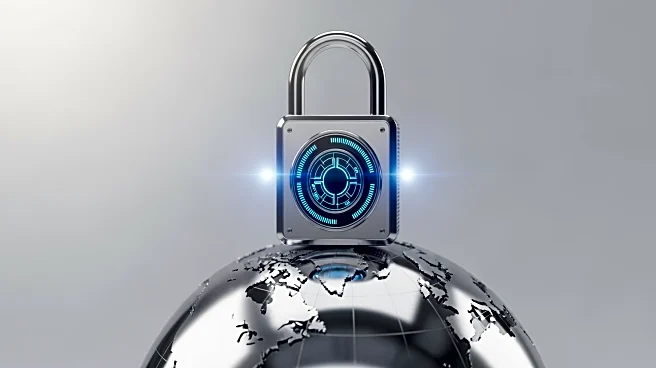What's Happening?
Australia is set to sign a new United Nations convention aimed at combating cybercrime through increased international cooperation and information sharing. The treaty, led by the UN Office on Drugs and Crime,
targets various online offenses such as phishing, ransomware attacks, trafficking, and hate speech. However, the treaty has faced criticism from major technology companies and human rights organizations, who argue that it could lead to a broad surveillance framework undermining privacy and security. Concerns include cross-border data sharing without legal challenges and vague definitions of cybercrime that could restrict freedom of expression. Despite these issues, Australia plans to sign the treaty at a ceremony in Vietnam, with the Department of Foreign Affairs and Trade stating that it will enhance international legal cooperation.
Why It's Important?
The signing of this treaty is significant as it represents a global effort to address cybercrime, a growing threat to digital security worldwide. For Australia, participating in this treaty could enhance its ability to collaborate internationally on cybercrime investigations and improve its cybersecurity posture. However, the concerns raised by technology companies and human rights groups highlight potential risks to privacy and civil liberties. If not addressed, these issues could lead to increased surveillance and reduced trust in digital environments, impacting both individuals and businesses. The treaty's implementation will need careful balancing to protect privacy while effectively combating cybercrime.
What's Next?
Following the signing, Australia will consider ratifying the treaty, subject to government approval. This process will likely involve further discussions on addressing the concerns raised by critics, particularly around privacy and data protection. Stakeholders, including technology companies and civil liberties organizations, may continue to lobby for amendments to the treaty to ensure it focuses solely on cybercrime without infringing on broader rights. The outcome of these discussions could influence how the treaty is implemented and its impact on international cybersecurity cooperation.












